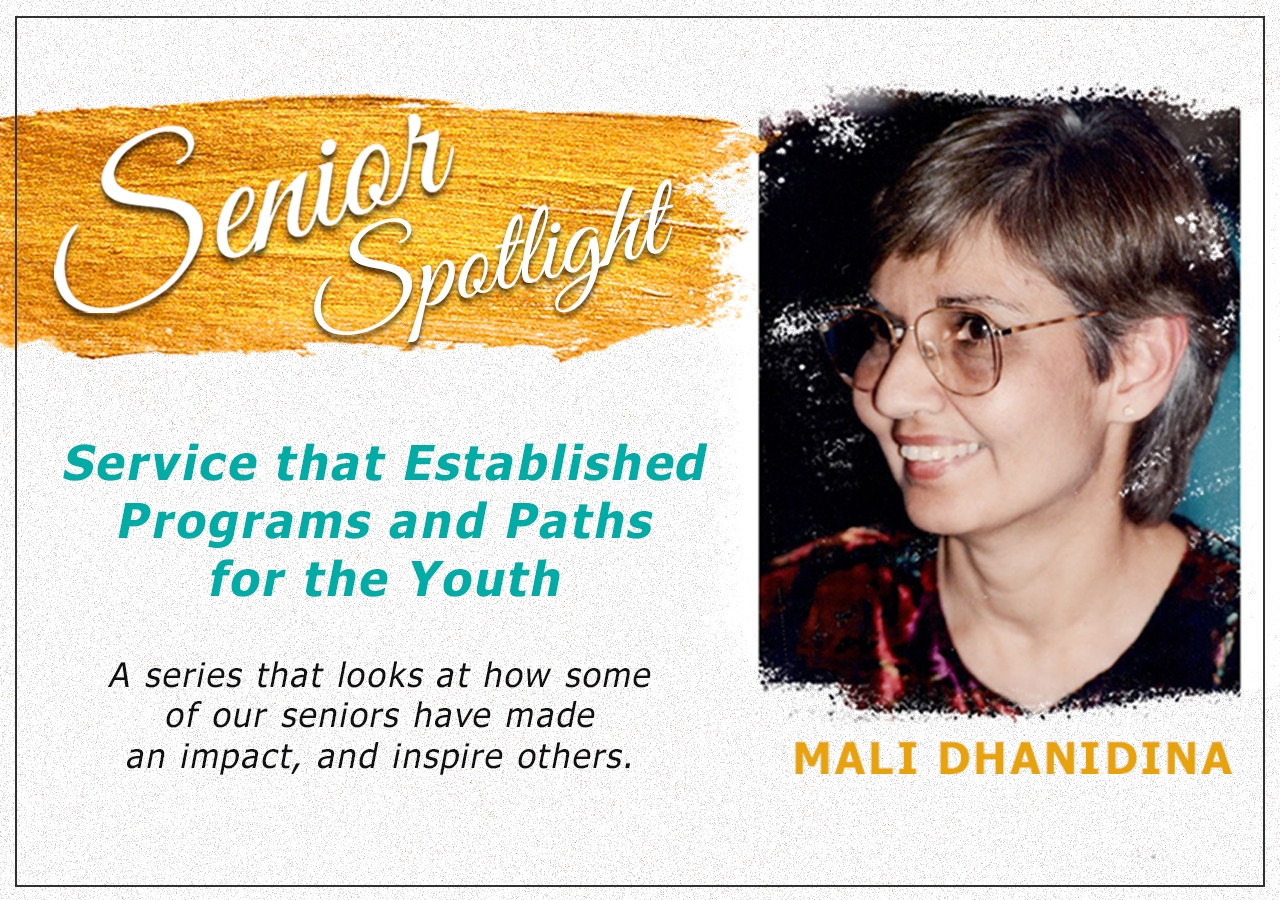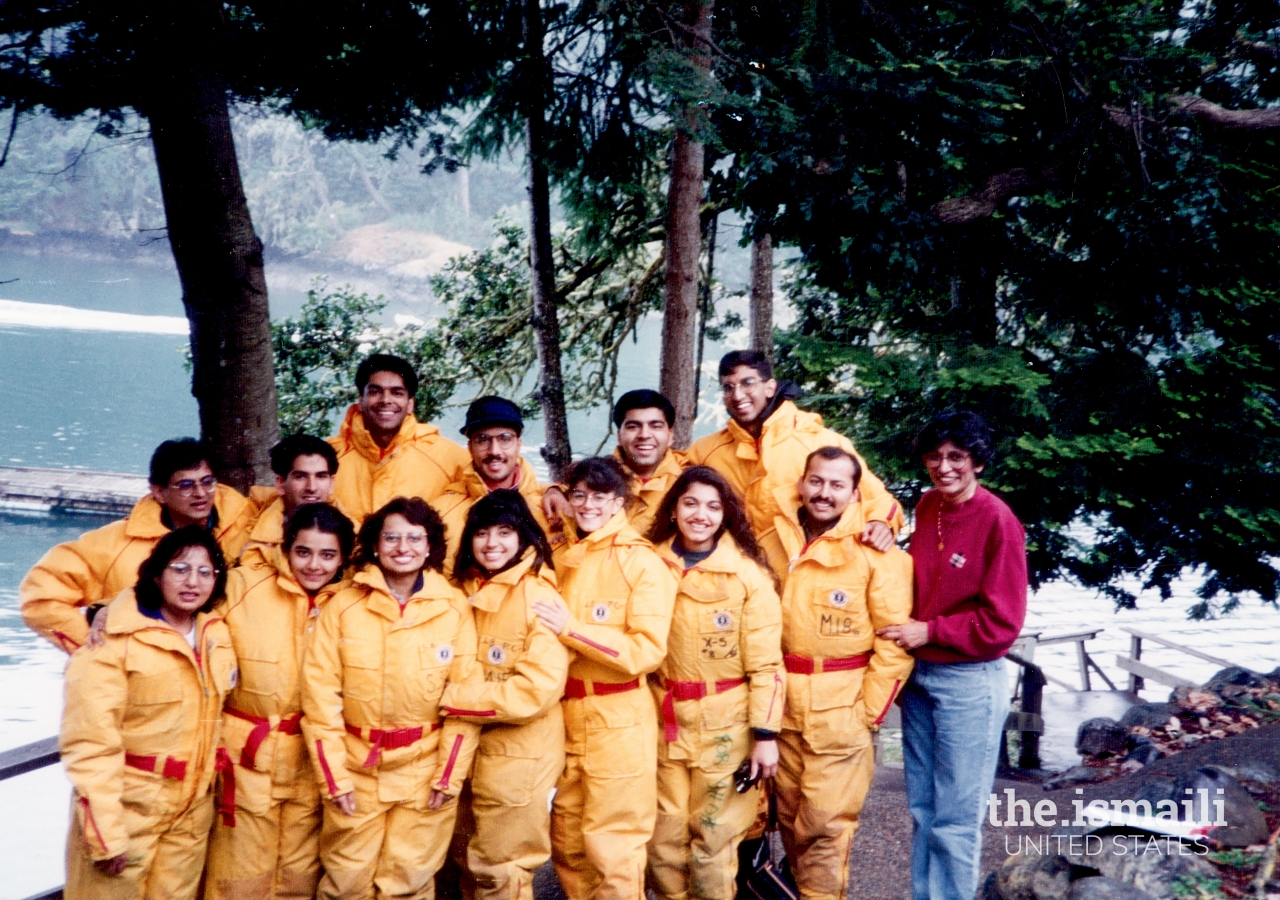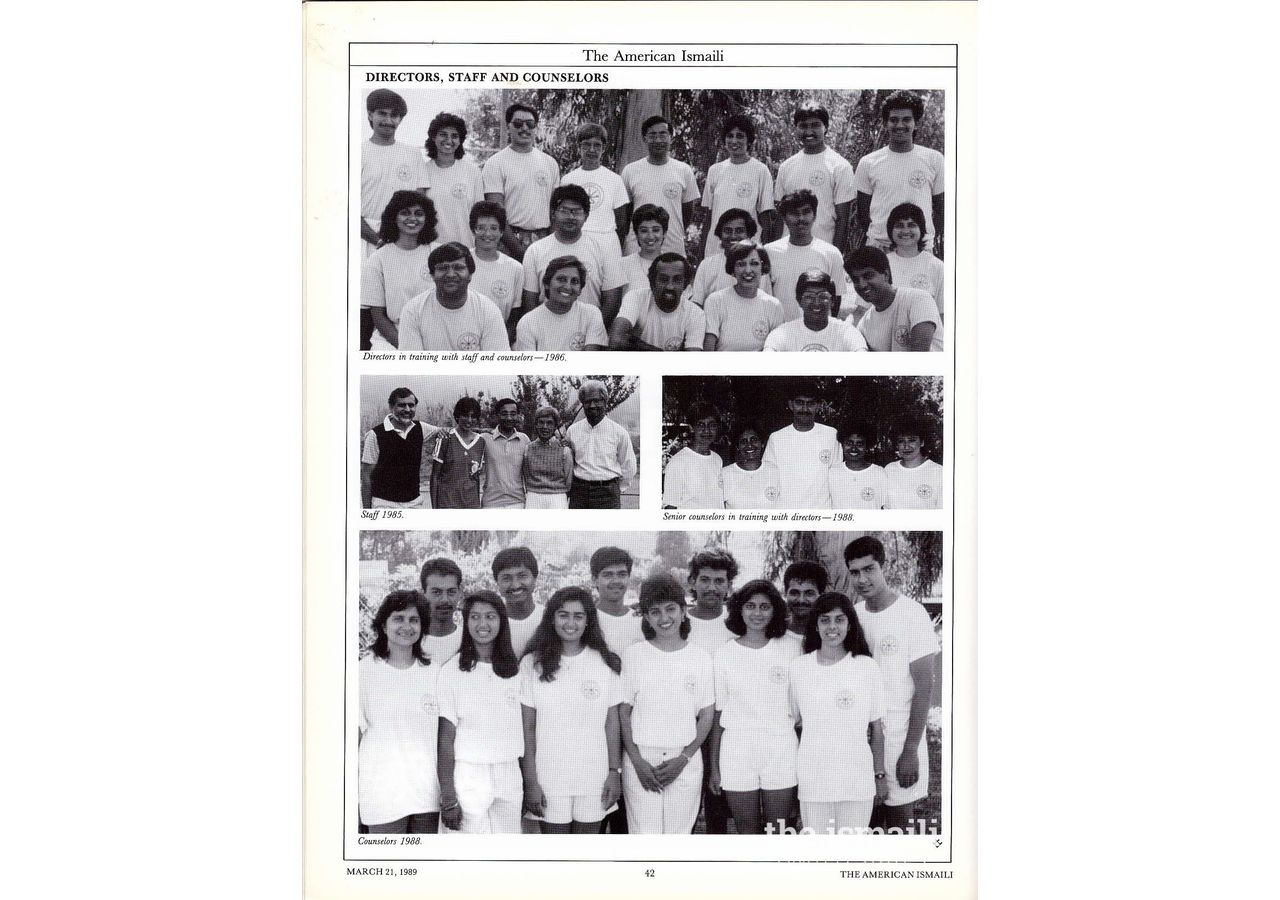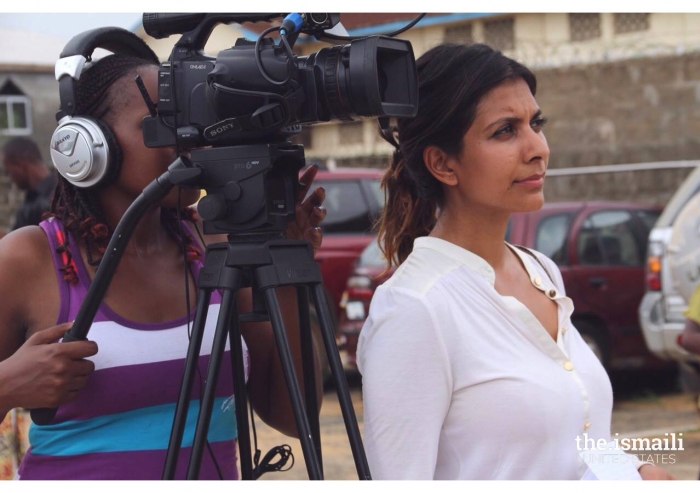“Al-Ummah was one of our first large big projects. Similar to the way you nurture your firstborn, we wanted to do things with care to get it to the level we needed it to benefit the Jamat. Al-Ummah has made a monumental impact in everything else I’ve been able to do, as it taught me about focusing on the process, to get things done right.” Mali Dhanidina
Mali Dhanidina arrived from Tanzania to Evanston, Illinois, in 1964, to join her husband, Lutaf, then studying at Northwest University. She acquired a job as a Montessori Preschool Teacher and soon after, was invited to participate as a member of faculty on the Midwest Montessori Teacher Training Center, the first such center for preschool teachers in the Midwest.
The next year, a group of parents approached her to assist them in establishing the first Montessori School in Evanston, known as Chiaravalle Montessori School, that started as a one classroom school in a church. Today, it has become a full-fledged Montessori School, housed in a permanent school building, and caters to over 200 preschool and elementary school children. Mali spent six years building her career there.
Mali
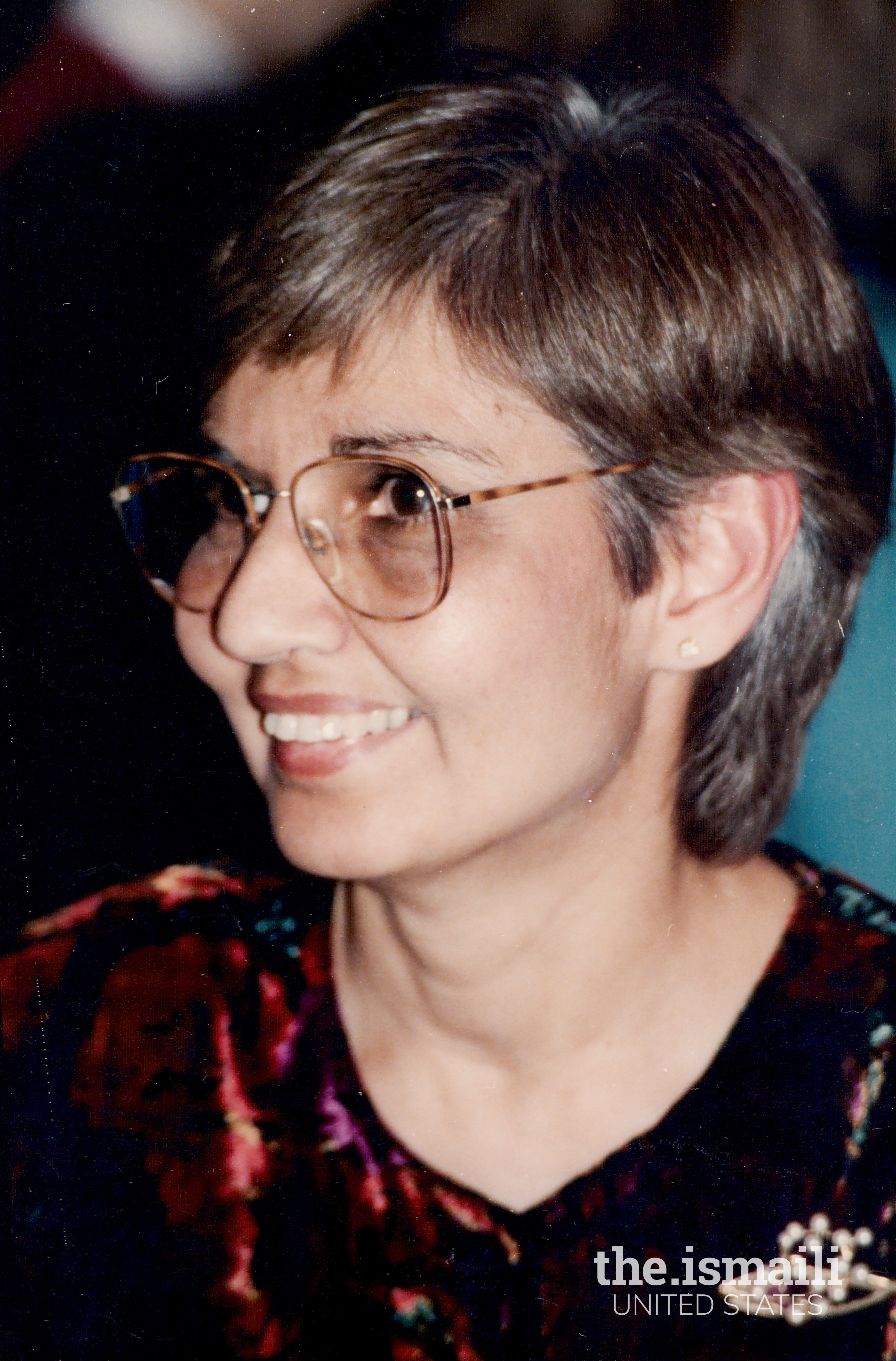
When her sons, Alif and Halim were born, Mali took a pause in her career to attend full-time to her family for three years. She then needed to go back to work but carried a strong belief that children ought to be raised by parents during their formative years. This led her to establish a full-day Montessori preschool so that her children could continue to be under her supervision until they were ready to go to elementary school. A few years later, she opened another school in Chicago.
During the early years, her boys began attending the Religion Education Center and both parents volunteered to teach their children’s classes. “Upon reflection, I felt that though my children were being taken care of through our participation, we were not doing justice to the rest of the children in Jamat,” said Mali. She approached Fariyal Ross-Sheriff, a member of the National Tariqah Board, then known as Ismailia Association for the USA, and Gulzar (Happy) Juma. Gulzar happened to also be an educator by profession. The three of them discussed the situation with Amirali Mamdani, President of the President of Ismailia Association USA, whereupon two teams were formed.
One team was to meet the needs of the preschool and lower primary of the religion education and the other to a more developed curriculum for upper-level students. Since this process required an interdisciplinary approach, a serious effort was made to include experts in various aspects of program development. The preschool team included Gulzar Juma, Fariyal Ross-Sheriff, Razia Pullen, Almas Kabani, Mahedi Lalani, Ali Asani, and Mali. The elementary group was led by Lutaf and Mehboob Daya, and later on included Jamaluddin Hussain and Kamal Taj. The involvement of President Mamdani also facilitated the support given to the latter by the Ismailia Associations of Canada and Pakistan, which seemed to have been ahead of the USA in the development of the curriculum.
The training of Preschool and lower primary was launched in Chicago, where over 20 volunteers participated and graduated after attending a year’s worth of workshops. The elementary school component was launched in Atlanta, hosted by Shafiq Ladha. This component also provided the heads of schools with, knowledge needed to run schools efficiently and with accountability. The training program was given the name, Dar al Tarbia al Islamia, and was initiated in 1982.
As a result of these efforts, faith-focused education began to become professionalized nationally. “Though the name changed over the years, the need for training volunteers is very much alive today,” says Mali. The Institute of Ismaili Studies has made the lives of the volunteer teachers simpler by providing standardized curriculum to schools globally.
During her involvement, Mali served as the Chairperson of the Midwest Ismailia Association for five years, which helped her continue further her work on school improvement. She also served as the Honorary Secretary on the Midwest Council from 1987 -1990. This opportunity gave her insight in what was involved in planning with the international leadership.
Mali shared that she was beginning to realize “that our adolescents were struggling to navigate between the pop culture and our traditions.” Fariyal and Mali submitted a proposal to the Council for the USA to establish a non-judgmental summer workshop for the adolescents that focused on leadership and identity development as American Shia Ismaili Muslims, using best practices available to us. The proposal was submitted and approved by Mawlana Hazar Imam as a Silver Jubilee Project for the USA. It was sponsored by Aga Khan Foundation USA (AKF). The project was “Al-Ummah: an Experience in Islamic Living.”
Obviously, this project required expertise in various aspects of development. Fariyal became the project manager and Ali Asani and Mali took over the responsibility of developing the program content. As program directors, they adopted the model run by HighScope Adolescent Workshop. Over the next two decades, Al-Ummah received ample Jamati support. Countless skilled volunteers offered various services in managing the tasks from the ground level. Mahedi Lalani documented the program that would enable other countries to replicate it.
Lalani
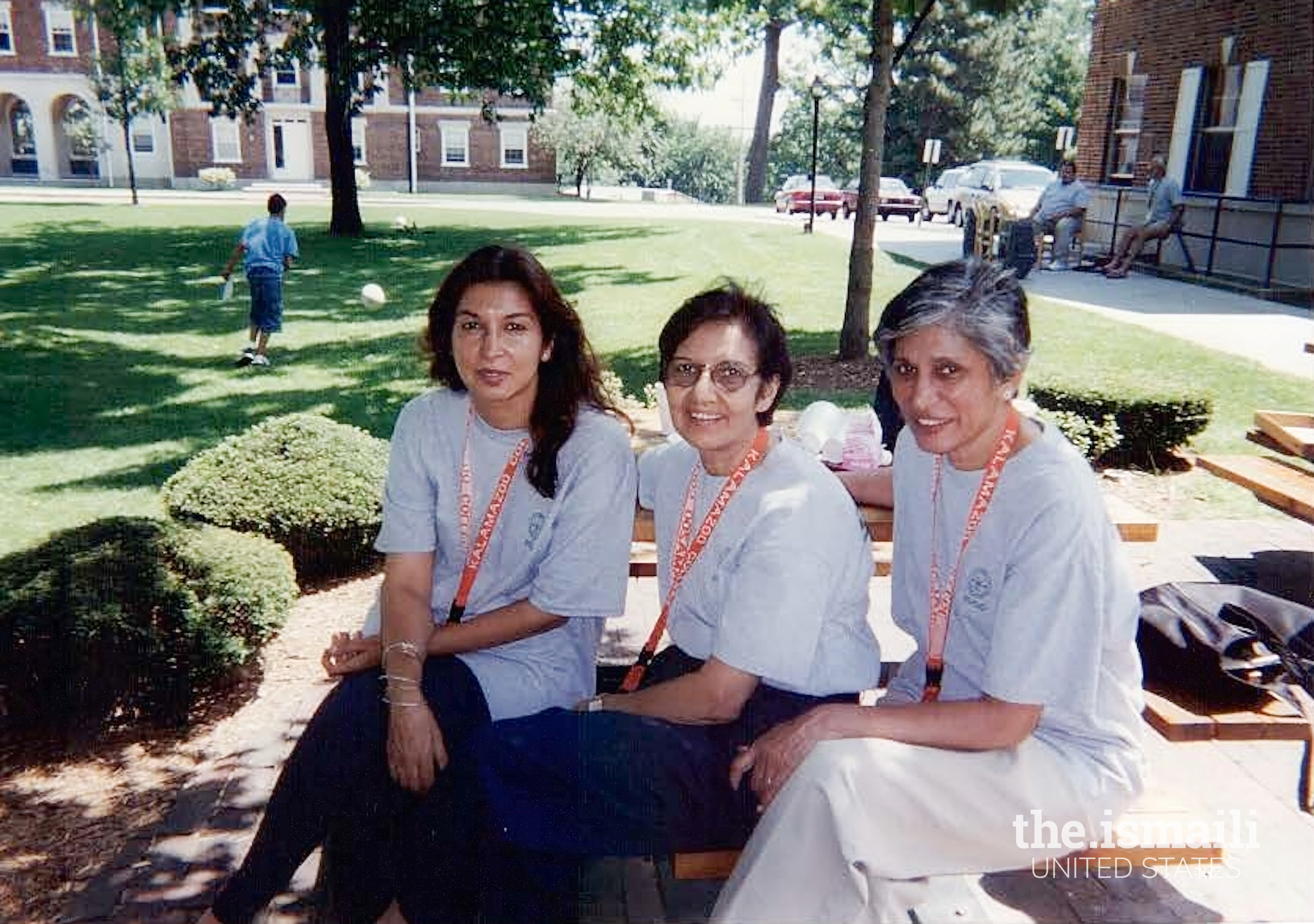
Al-Ummah expanded to include pre-adolescents as well as adding a Directors-in Training component that trained locally as well international directors. This included senior counselors who currently still run various such workshops. Al-Ummah certainly provided our youth a place to better understand and appreciate what it meant to be an American Shia Ismaili Muslim living in the USA.
Currently, Al-Ummah participants/counselors are seen taking major roles in serving the Jamat and outside in professional capacities, within the framework of our faith. As the program expanded, Nadia Lalani was recruited to be the project manager while Fariyal took over the new responsibility with the program structure.
The camp’s impact is evident for Aliya Merali Virani, who says, “Al-Ummah helped shape me into who I am as an individual. It guided my faith, and built many enduring friendships, as well as cultivated me to go from participant to counselor to director, in the program. Al-Ummah guided my educational career and direction for which I am truly grateful, and it has allowed me to remain involved as I now assist with Global Encounters.”
Rahim Kassam, another attendee, says, “I was so fortunate to experience Al-Ummah as a camper and counselor, and the impact was tremendous, particularly in the area of leadership. I came from a small city where my family was very involved in our faith and community, but Al-Ummah’s impact allowed me to assimilate our faith to other faiths and articulate it with confidence. It also brought me closer to so many new lifelong friendships, within the community, and around the nation, and to continue to serve our community.”
Mali then served on the Council for the USA for one term before she was appointed President of the Council for the Midwest in 1990, serving for two terms. During this period, her emphasis was in developing a culture of effective and compassionate leadership with a strong emphasis on using a synergistic approach to providing service to the Jamat.
The Midwest continued to have an influx of new immigrants from South Asia, as well as a few from Uganda and Tanzania. Because of their low socio-economic status, they were choosing to settle in areas where public schools were not desirable. Unfortunately, the rental Chicago Jamatkhana, by design, was also located in the same vicinity for ease in accessing Jamatkhana on a daily basis. This made it difficult to encourage the Jamat to move out of the area and seek better schools. So, the Council began to search for a permanent Jamatkhana site in a middle/upper-middle-class suburb of Glenview, that had excellent public schools, hospitals, and amenities. This would be an environment where the families would thrive and have a better quality of life.
The Council for the Midwest also realized that in order to be effective service providers, they needed a synergistic approach. Fariyal and Mali proposed that volunteers be trained to provide synergistic services and in a systematic and effective fashion, on a national platform. The program was known as the Leadership Program for Volunteers. This effort used a case management approach that focused on families as a whole as they tried to uplift their lives in the United States. This effort resulted in the leadership’s increased awareness that there were many benefits that those in need were entitled to receiving from the cities where they lived, from financial assistance to subsidized housing and health benefits.
Mali’s final service was on the Global Research Initiative Program that attempted to determine the needs of the seniors. She was the lead representing the United States. Many current programs for the seniors were being derived from the information gathered through this project.
In 2014, Mali retired from formal service and moved closer to her children and grandchildren, in Orange County, California. She, along with her husband, are now full-time grandparents to their grandchildren who require their time and energy.
But their initiative, dedication. and willingness to work with so many others to create programs that have benefited so many is a testament to their vision and desire to help with the intellectual foundation of faith, that has been so central to the values of so many in the Jamat.

